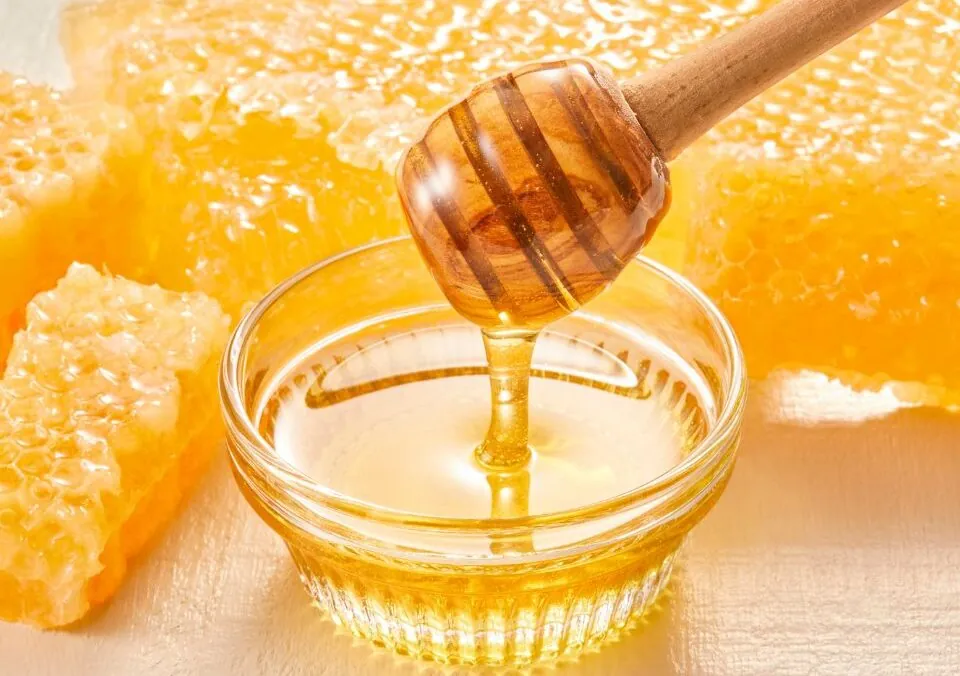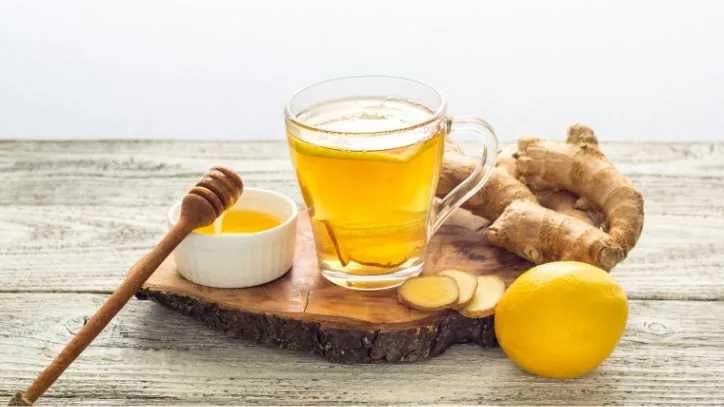Blog
Treat Your Allergies with Honey!

Seasonal allergies can make life uncomfortable and irritating. From itchy, watery eyes to a stuffy nose that seems impossible to clear, the symptoms of allergies can disrupt our daily activities. You may find yourself sneezing, coughing, or struggling with a range of discomforts. When these symptoms strike, many people instinctively reach for over-the-counter medications like Benadryl, Zyrtec, or nasal sprays. While these can provide relief, they are not the only solutions available.
The Sweet Solution: Honey
Honey has been celebrated for centuries not just as a delicious natural sweetener but also for its extensive health benefits. For those dealing with seasonal allergies, honey can be a surprisingly effective remedy. This sweet nectar, produced by bees, is packed with anti-inflammatory properties. These properties help to alleviate some of the frustrating symptoms that accompany allergies. When your airways feel congested or if you develop a rash due to allergies, honey can provide relief by reducing irritation and inflammation.
How Honey Works
One of the most intriguing aspects of honey in the context of allergies is its role in immunotherapy. Immunotherapy is a medical treatment that helps to desensitize individuals to allergens by exposing them to gradually increasing amounts of the substance they are allergic to. Honey can be part of this process, especially when it comes to pollen allergies.
Since bees gather nectar and collect pollen from local flora, raw local honey inadvertently contains small amounts of pollen that permeate the environment where you live. When you consume this local honey, you expose your body to the very pollen responsible for your allergy symptoms. This exposure can help build your immunity over time, potentially leading to reduced symptoms during peak allergy seasons.
The Benefits of Local Honey
Choosing local honey is crucial for the best results. Raw, local honey is the most effective type as it contains the specific pollen from your area. This means that the honey you consume is tailored to your unique environmental allergens. For instance, if you live in Arizona and are suffering from allergies caused by specific plants in that region, using honey sourced from local beekeepers can help your body adapt and potentially lessen your reactions.

Nutritional Benefits
Beyond its role in allergy relief, honey is also rich in nutrients. It contains a variety of vitamins, minerals, and antioxidants, which can help support your overall health. The antioxidants found in honey can combat oxidative stress in the body—an important factor in maintaining a healthy immune system and managing allergic reactions. For more information on the health benefits of honey, you can check out several resources, such as Fill Your Plate.
Tips for Incorporating Honey into Your Diet
If you’re considering using honey as a remedy for your seasonal allergies, here are a few practical suggestions for incorporating it into your daily routine:
- Tea and Honey: A warm cup of herbal tea with a generous spoonful of honey not only helps soothe your throat but also provides the beneficial properties of honey. Herbal teas like chamomile and peppermint can be particularly beneficial.
- Honey in Smoothies: Add a tablespoon of local honey to your morning smoothie for a delicious nutrient boost. Combining it with fruits like bananas and berries can enhance the health benefits even further.
- Honey on Toast or Yogurt: Spread a bit of local honey on whole-grain toast or mix it into your yogurt. This makes for a wholesome and tasty breakfast option that supports allergy relief.
- Honey in Homemade Salad Dressings: Use honey as a natural sweetener in vinaigrettes. Mix honey with olive oil, vinegar, and your favorite herbs for a tasty dressing that complements salads.
- Direct Consumption: If you enjoy the taste of honey, consider taking a spoonful by itself. Eating honey on an empty stomach can enhance its potential benefits.
Contact Your Local Beekeepers
The benefits of honey extend far beyond just allergy relief, and supporting local beekeepers benefits your community and the environment. The bees play a vital role in pollination and maintaining ecological balance. Engaging with local beekeeping helps sustain these important populations.
One of the great things about living in Arizona is the abundance of local honey producers. For those looking to support local agriculture, consider reaching out to local beekeepers like the McClendon’s Select in Peoria, AZ. You can find various honey products and learn more about the beekeeping process, all while enjoying the health benefits of your local honey.
Other Natural Remedies for Allergies
While honey can be beneficial, other natural remedies can complement its use. Some individuals find relief from their allergy symptoms using methods such as:
- Nasal Irrigation: Using a saline solution to rinse the nasal passages can help clear allergens and mucus, providing immediate relief from sinus pressure and congestion.
- Quercetin: This natural antioxidant, found in foods such as onions, apples, and citrus fruits, can help stabilize histamine release and reduce allergic symptoms.
- Probiotics: Consuming probiotics through supplements or fermented foods may help support a balanced immune response against allergens.
- Essential Oils: Some essential oils, such as eucalyptus and peppermint, can provide respiratory relief. Diffusing these oils or using them in steam treatments may evoke a soothing response.
Conclusion
When dealing with seasonal allergies, it’s essential to explore varied treatment options. While over-the-counter medications can provide immediate relief, don’t overlook the benefits of natural remedies such as honey. This sweet substance not only alleviates allergy symptoms but also offers a plethora of additional health benefits.
Remember, for the best effects, choose raw, local honey to match the pollen unique to your environment. By incorporating honey into your diet, not only could you find relief from your allergy symptoms, but you’ll also be supporting local agriculture and enjoying a delightful addition to your meals.
For further detailed information, don’t hesitate to check out sources such as Fill Your Plate – Find a Farm Product. Embrace the power of honey and enjoy a more comfortable allergy season!
By Heide Kennedy, Arizona Farm Bureau Communications Intern


















